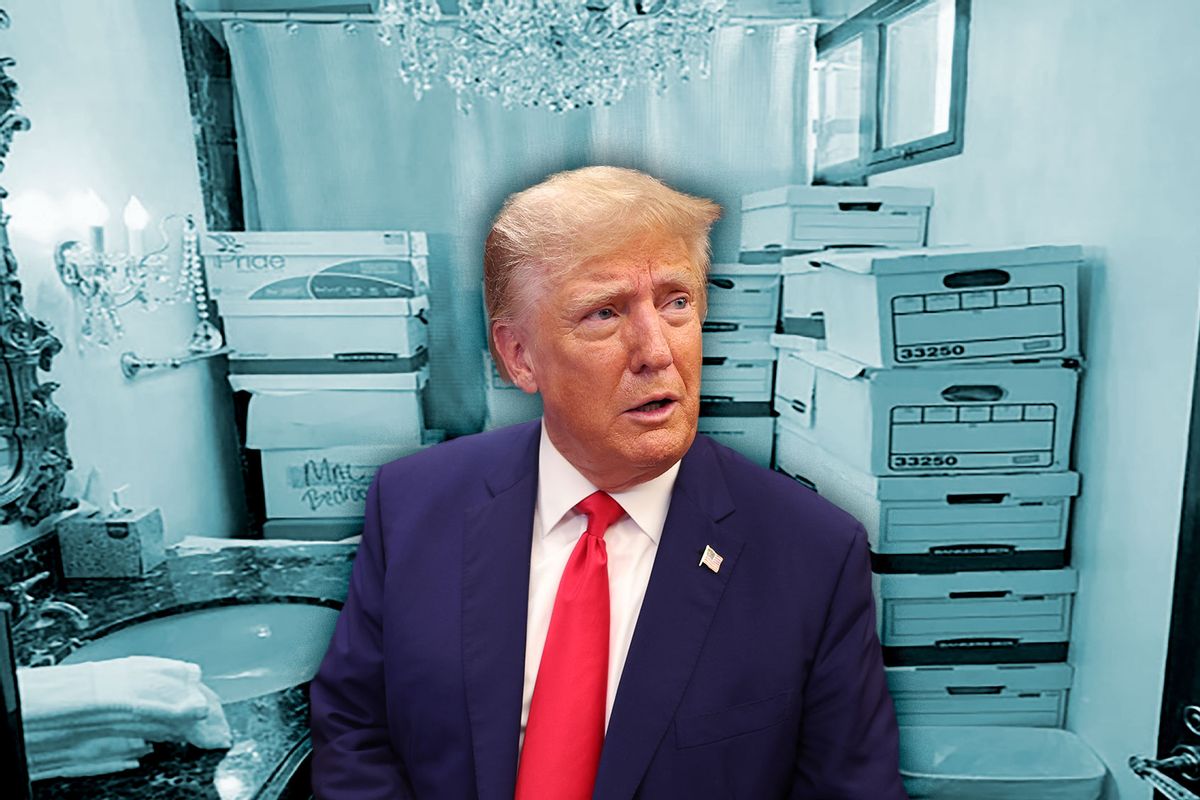“Solidly pro-Trump ruling masquerading as neutral”: Experts rip Judge Cannon for setting up delay

The judge overseeing Donald Trump’s indictment for charges that he illegally retained national security documents at his Mar-a-Lago resort after leaving the White House on Friday issued an order indicating that she would give the former president more time to review prosecutors’ plethora of evidence ahead of the trial, which is currently slated for May 2024.
Trump-appointed Judge Aileen Cannon also noted in her that she would consider delaying the start of the South Florida trial in a continuation of timetable talks from a hearing earlier this month. “Without expressing any view on the merits of those anticipated motions, it is evident that the parties are at odds on significant issues related to the scope of discoverable information in this case, and that such disagreements will require substantial judicial intervention,” Cannon wrote in the Friday order. She also observed that she anticipates a significant amount of debate over the “unusually high volume” of evidence.
At the Nov. 1 hearing, Cannon underscored the 1.3 million pages of evidence that prosecutors have handed the defense, coupled with thousands of hours of security video captured at Trump’s West Palm Beach estate.
“I am not quite seeing a level of understanding on your part to these realities,” Cannon said to Jay Bratt, a prosecutor on Smith’s team, during a discussion over whether Trump’s legal team would be able to effectively review the evidence over the next six months.
Cannon also cited the complexity and time constraints stemming from the wealth of evidence and Trump’s additional prosecutions in D.C., New York City, and Fulton County, Ga.
“It is clearly in the best interest of Justice for President Trump to have adequate time to prepare and file motions, as he works to defeat these hoaxes and marches back to the White House,” said Trump campaign spokesperson Steven Cheung in a statement Friday.
National security lawyer Brandon Van Grack, who served on special counsel Bob Mueller’s team, warned that although Cannon did not formally postpone the start of the trial her order “SUBSTANTIALLY delays the trial.”
He noted that he delayed pre-trial motions from November 3 to February 22 and the schedule does not account for motions filed under the Classified Info Procedures Act (CIPA).
“Second,” he added, “Court rightly notes its interpretation of Section 4 under CIPA will require more time for DOJ to brief. The Court’s decision flipped the discovery standard on its head & DOJ will have more material & a greater challenge to seek to prevent providing docs to the defendants.”
“Third, Court continues to hold DOJ to unrealistic standard,” Van Grack concluded. “For example, it criticizes DOJ for not establishing a facility in the district to handle classified info when investigation began on Feb 22, 2022—even though in 2022 DOJ didn’t know whether & where it would bring charges.”
Former U.S. Attorney Harry Litman tweeted that Cannon’s order “sets the stage for a delay of three months or more, while pretending not to, & ignoring all the points that the DOJ made.”
“It’s a solidly pro-Trump ruling masquerading as neutral,” he wrote.
“The more you review it, the worse Cannon’s order looks,” he added in a separate tweet, noting that Cannon ignored the DOJ’s arguments and that her scheduling order “encumbers” judges in D.C. and Fulton County with a “scheduled date that won’t hold.”
Want a daily wrap-up of all the news and commentary Salon has to offer? Subscribe to our morning newsletter, Crash Course.
Litman added that the order also “repeatedly puts scheduling question in terms of Trump’s due process right of having enough time to prepare for trial (inc in light of other trials), suggesting she’ll adopt that basis when she imposes the next big delay.”
Read more
about Judge Aileen Cannon

